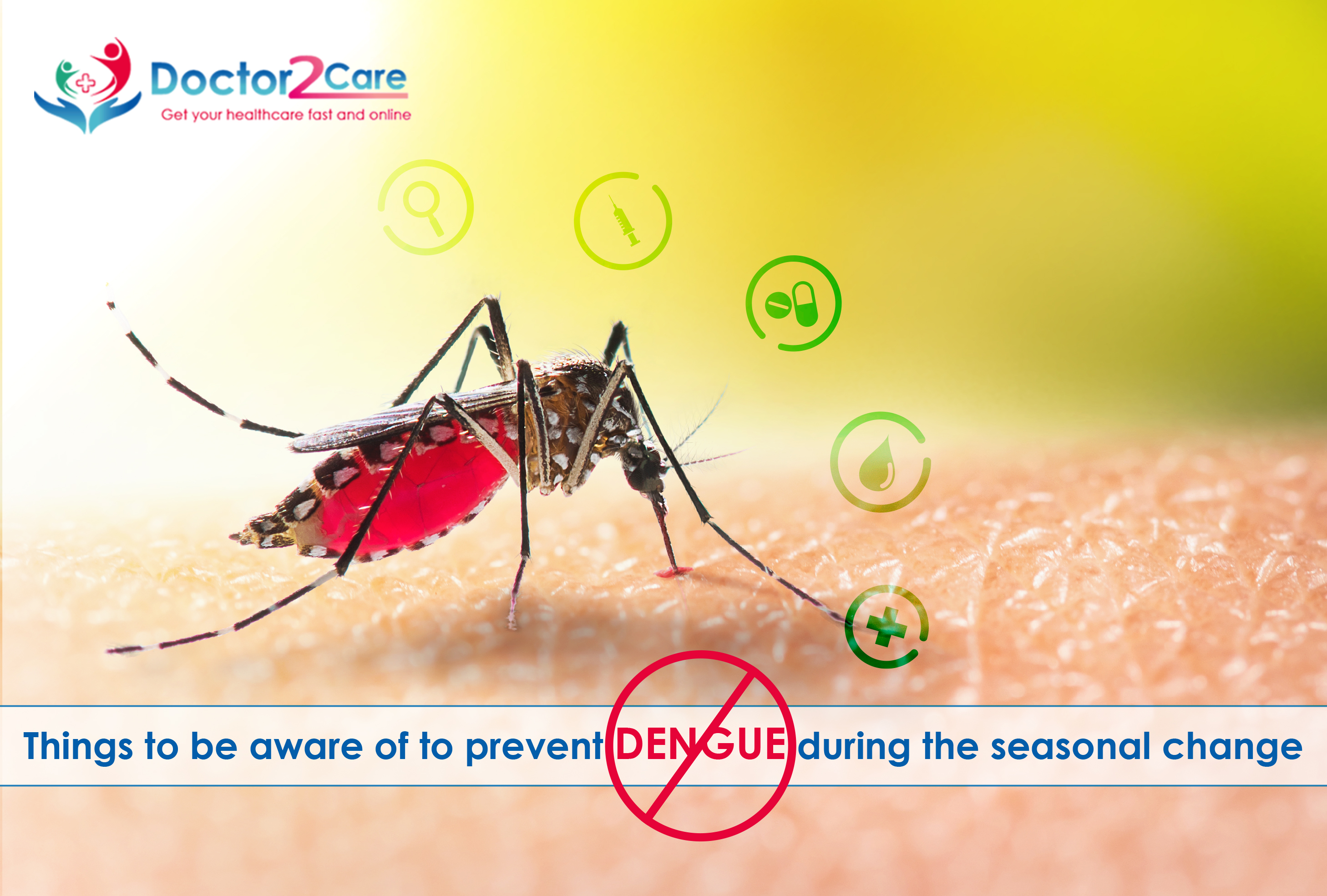Things To Be Aware of To Prevent Dengue During the Seasonal Change

West Bengal is undergoing an unexpected rainy season. December, the winter month of Kolkata, has been drenching in the rain since the first week. The untimely cyclone Jawad lends panic and unstoppable pouring, leading to waterlogging and clogged drains.
And as we all know, standing water provides the most favourable conditions for mosquitoes to populate. The fact that creates panic is that untimely rains are likely to increase the chances of mosquito-borne diseases like dengue. According to recent reports, West Bengal accounts for 224 dengue cases, including deaths in 2021 (till July).
The increase in dengue cases has raised questions on the sewage and drainage system of the state. While the rain pours, the leading news reporters and media houses highlight the poor drainage system of West Bengal that leads to filled potholes, waterlogging and standing water. Incapable of channelling the standing water, it gives rise to the increase of mosquitoes, spreading dengue.
The poor drainage system of the state is held accountable for the rise in dengue cases from 46 cases in 2017 to 224 cases in 2021.
However, blaming the drainage system will not help us treat the disease. With technology being a blessing, you can quickly get in touch with your physician by choosing online doctor consultation India at the comfort of your home.
To know when you should seek medical help, learn about the disease and symptoms well in advance.
Let's take a look.
What is dengue?
Dengue is a mosquito-borne disease that is common in the subtropical and tropical areas of the globe. Mild dengue may have flu-like symptoms, while severe dengue infection may show a rapid decrease in platelet count, rapid breathing, liver enlargement, blood in vomit, and more. It is crucial to seek medical help to avoid fatal conditions on noticing the slightest symptoms.
What are the symptoms of dengue?
Some patients may show no symptoms and all, while some may show common signs of cold and flu. As the symptoms are quite common, many patients do not consider it dengue and may also reach out to the best ENT doctor online, getting no proper treatment. However, it is crucial to test for dengue if the following symptoms persist.
- Headache
- Swollen glands
- Pain behind the eyes
- High fever (104 F or 40C)
- Rash
- Nausea
- Vomiting
- Muscle, bone or joint pain
Other warning signs may include -
- Fatigue
- Restlessness
- Rapid or difficult breathing
- Bleeding from gums and nose
- Bleeding under the skin
- Severe stomach pain
- Persistent vomiting
- Blood in stool, vomit or urine
Infected patients can recover within a week or two on quality treatment. Nevertheless, in the worst case scenario, the symptoms can worsen and can also lead to death for patients suffering from Dengue shock syndrome or Dengue haemorrhagic. Therefore, it is extremely crucial to seek medical help to avoid such fatal conditions.
Who is more at risk?
When it comes to dengue, age and gender know no bar. Since it is a mosquito-borne disease, everyone is at a risk of being infected if bitten by a mosquito.
Nevertheless, given below are two categories of people who are at a higher risk of being infected -
- Those with a history of dengue - If you have been infected with dengue in the past, you are more likely to be infected again if a mosquito carrying the dengue virus bites you. Also, the symptoms of dengue are expected to attack sooner.
- Those living in dengue-prone areas - If you belong to the tropical and subtropical areas, you are more likely to be infected with the dengue virus.
How to prevent dengue?
There are two possible ways we can battle the spread of this disease, such as -
- Preventing mosquito population
Dengue is a mosquito-borne disease, and the first step to prevent dengue should be stopping mosquitoes from breeding. One must take all the required precautionary methods to escape mosquito bites. To do so, you can use mosquito repellents and prevent mosquitoes from entering your home by closing your windows and doors. You can also protect yourself from mosquito bites by wearing proper clothes.
Vaccine
People living in dengue prone areas should get their shot of Dengvaxia (dengue vaccine). To note, this vaccine is only given to those with a history of dengue fever. If you have never been infected, you are likely to increase your chances of dengue upon taking the vaccine. Therefore it is best to consult with your doctor before getting jabbed.
Additionally, it is also vital to seek doctor help upon noticing the slightest symptoms of dengue to avoid life-threatening conditions.
You can choose to reach out to your doctor online by registering on our website. We provide you with an easy registration process along with 100% secured and private consultations and data management facilities.
So without further ado, head over to our website and get registered.